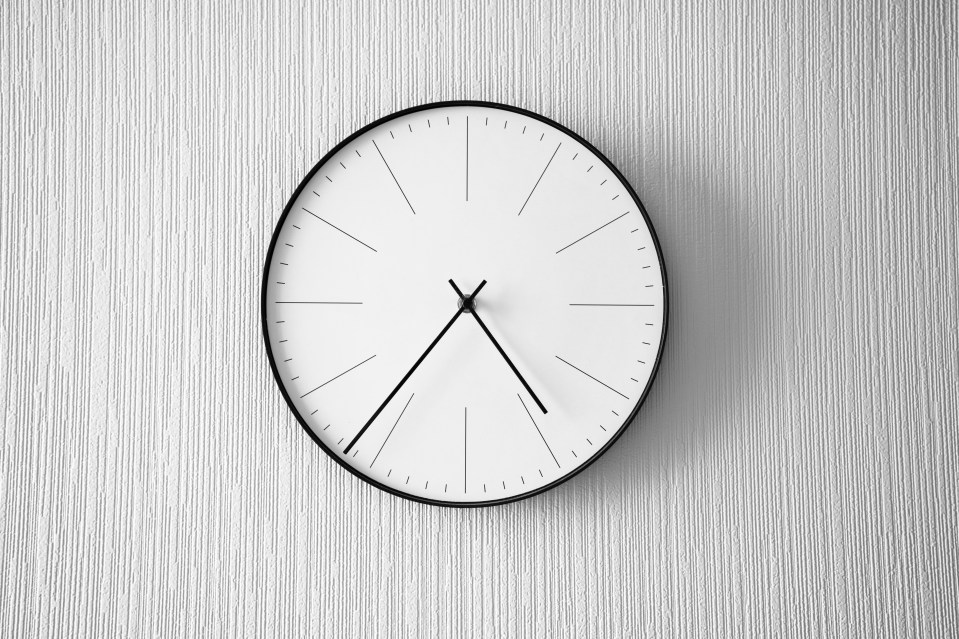Why You Should Consider Your Sleep Position
As the days grow longer and spring approaches, many people look forward to the seasonal clock change that brings us British Summer Time (BST). This year, the clocks will spring forward on the last Sunday of March, specifically on March 30. Unfortunately, this transition means losing an hour of sleep as we shift from 1am to 2am. However, the bright side is that it also brings longer evenings filled with sunshine to enjoy throughout spring and summer.
What Time Will the Clocks Change?
The annual time change occurs at 1am on the last Sunday of March. This year, it means you will lose an hour of sleep as the clock jumps from 1am to 2am. While this can be a bit disorienting initially, by the time June arrives, the UK will bask in about 16 hours of daylight each day, making it a wonderful time to enjoy outdoor activities.
What If I’m Working on March 30?
The decision to change the clocks on a Sunday is made to minimize disruptions to businesses and educational institutions. However, for those working night shifts, this transition can complicate things. If you happen to be on duty when the clock changes, your shift will effectively be one hour shorter, as long as your contract stipulates specific working hours. In cases where your contract specifies the number of hours rather than exact times, you might be asked to stay an extra hour. However, many employers choose to handle this by adjusting your hours when the clocks fall back in October, ensuring that employees are paid fairly for their time. According to employment experts at Peninsula, contracted workers should not see any changes in their pay due to a shorter shift.
Will I Get Paid for the Lost Hour?

For those who work during the night, whether you will be compensated for the missing hour typically depends on your payment structure. If you are an hourly employee, it is likely that you will not be compensated for the hour that disappears between 1am and 2am. Conversely, if you are salaried or on a fixed daily rate, your employer may continue to pay you the usual amount despite the shorter shift. Keep in mind, if your contract specifies working hours, your employer is not obligated to pay for the additional hour when the clocks revert back in October.
Why Do the Clocks Change?
The practice of changing the clocks was first introduced in Germany in 1916, followed shortly by the UK and other nations involved in World War I. During World War II, Britain even adopted British Double Summer Time, keeping clocks an hour ahead of Greenwich Mean Time to boost productivity. Since then, the UK has generally observed British Summer Time, with an exception between 1968 and 1971 when clocks were advanced without being reverted.
Will My Alarm Update Automatically?
If you rely on technology for your morning wake-up call, most modern devices will automatically adjust the time for you. For instance, if your alarm is set on an iPhone and the date and time settings are configured to ‘set automatically,’ your alarm will go off at the new 8am, as intended. Most smartphones are designed to make this adjustment seamlessly as well. However, if you use a traditional clock radio or an analogue alarm clock, it’s wise to double-check the time before bed to avoid being late.
Do Other Countries Change Their Clocks?
Approximately 70 countries worldwide participate in changing their clocks to optimize daylight usage. Countries that observe some form of daylight saving include the United States, much of Europe, and parts of South America and Australasia. Conversely, many nations situated closer to the equator, which enjoy ample daylight year-round, do not alter their clocks.
Will We Ever Stop Changing the Clocks?
There have been longstanding discussions regarding whether the UK should maintain British Summer Time throughout the year. Opponents of this change often cite safety concerns, especially during darker mornings in northern regions. In 2019, the European Parliament voted to end the clock-changing practice across the EU; however, progress on implementing this change has since stalled.
The Best Sleep Routine and Environment
According to sleep expert Thomas Høegh Reisenhus from TEMPUR®, establishing a solid bedtime routine and conducive sleep environment is crucial for a good night’s rest. Practicing good sleep hygiene can significantly enhance your sleep quality. Aim to create a consistent sleep schedule that aligns with your natural sleep-wake cycle. Avoid compensating for lost sleep with lengthy lie-ins; instead, consider spending your mornings engaged in relaxing activities like reading in bed or enjoying a leisurely coffee in the kitchen.
Ensure that your sleep space—including your bedroom, bedding, and sleepwear—is optimized for rest. The ideal sleep environment should be dark, quiet, and cool, reminiscent of a cave. If light intrusion disrupts your sleep, consider using an eye mask or blackout curtains. To minimize noise, incorporate soft furnishings that absorb sound, or use soothing background music to block out disturbances. Additionally, keeping your room at a comfortable temperature of around 18°C and using natural, breathable materials like cotton and linen for your bedding can further enhance your comfort.
Remember, everyone’s sleep needs are different. While general guidelines can help, if you continue to experience sleep difficulties or persistent fatigue, don’t hesitate to consult a healthcare professional for personalized advice and support.
Do you have a money problem that needs sorting? Get in touch by emailing [email protected].
Plus, you can join our Sun Money Chats and Tips Facebook group to share your tips and stories!